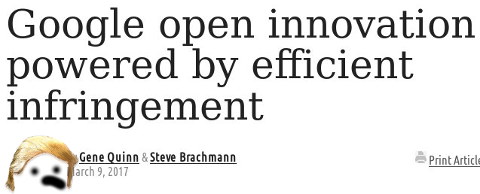

THE USPTO, especially since David Kappos, strives to make money and make itself relevant by granting a lot of patents. The same is true, to some degree, at the Court of Appeals for the Federal Circuit (CAFC), a "top patent court" according to this new Reuters report about the Supreme Court's rulings regarding patents. To quote:
The U.S. Supreme Court's unanimous backing on Monday of a ruling by the country's top patent court was a rare instance of agreement with a body whose decisions in that specialized area it regularly overturns.
Tellingly, Monday's decision related to trademarks, not patents. Since its term began last October, the Supreme Court has thrown out all six patent-related decisions by the U.S. Court of Appeals for the Federal Circuit, which was set up to handle such cases.
Since 2014, the high court has upheld the patent court in only two of 16 patent cases, a Reuters review showed.
The lack of agreement between the high court and the patent court reflects a basic conflict at the top of the U.S. legal system over intellectual property rights, which are critical to many industries.
A Sign of the Times? A Brief Look at the Trend of Patent Cases Before the US Supreme Court
[...]
Since Tyler v. Tuel in 1810 the US Supreme Court has played a large role in interpreting patent law and defining the role patents play in our society. In the last few years the number of patent cases decided by the Supreme Court has greatly increased. Historically, there has typically been just one or two patent cases per year heard by the Supreme Court, and sometimes years when with no patent cases. Now the Supreme Court is hearing 3-4 or more patent cases per year, every year.